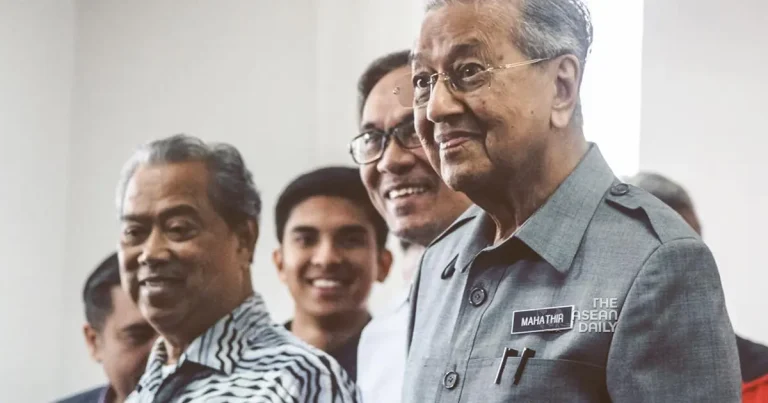12-1-2024 (KUALA LUMPUR) Malaysia’s new year kicked off with familiar political drama – rumors of yet another attempt to unseat the incumbent government through parliamentary maneuvers. As allegations swirled of the so-called “Dubai Move” to topple Prime Minister Anwar Ibrahim, it begged the question: are Malaysians really in the mood for more backdoor government upheaval?
Signs point to possibly not, if the latest rumored putsch shared the fate of past ill-fated efforts since 2020. But with the economy floundering and Anwar’s ratings dropping, public acquiescence to fresh instability can’t be ruled out. The fact remains – many Malaysians are struggling under the strain of inflation and unemployment. Remaining deaf to their anxieties risks further eroding the government’s standing.
Hence, while the Dubai Move’s veracity is unclear, its context matters more. The endless churn of coups and political chess underscore how Malaysia’s system disproportionately empowers party elites and their horse-trading, not voter preferences. Backdoor governments emerge despite the will of the people.
This disenchantment kindles nostalgia for past stability, making Malays susceptible to scaremongering about DAP or Anwar “betraying” them. But knee-jerk reactions against phantom threats only yield more turmoil. What Malaysians truly crave is leadership focused on alleviating economic distress and respecting identity, not obsession with power plays.
Unfortunately, zero-sum politics still predominates. The latest suspected attempt to lure defectors for a parliamentary putsch follows a depressingly familiar script. Prior unity pacts and anti-hopping laws haven’t ended such scheming by determined factions.
Some also conveniently conflate floor-crossing with entire blocs switching sides, as possibly allowed under current rules. But voters didn’t empower representatives to casually realign sans electoral mandate. However legal, backdoor coups are democratically bankrupt.
Now, even Anwar’s erstwhile allies like Bersatu dare not rule out options, citing his purported failure to uphold Malay-Muslim interests. Of course, opposition posturing caters more to its base than reflecting reality. But doubts raised can self-reinforce unless decisively dispelled.
Hence, merely lambasting the Dubai Move risks missing the plot. While voters may oppose naked power grabs, their patience for excuses is thinning given deepening financial strain. Real issues battering Malays risk being drowned out by sensationalist political sideshows.
With the Kingship rotating, conspirators likely eyed the current Agong as more receptive to their entreaties. But no constitutional monarch should enable such undemocratic maneuvers, especially nearing the end of their tenure. Upholding stability and popular sovereignty matters more than political games by elites.
For now, Anwar commands firm parliamentary backing after recent defections grew his majority. But breaching two-thirds dominance brings meager comfort when many Malaysians can barely withstand the cost of living. Sheer numbers cannot substitute for real reforms that improve welfare.
If the Dubai Move is serious, the plotters should know their time can be better spent addressing rural poverty and youth unemployment instead of chasing power. Similarly, Anwar must redouble efforts to showcase tangible economic uplift, not just political numbers.
Otherwise, the electorate’s verdict will be clear at the next polls. For Malaysia to finally transcend the toxic politics of the past, delivering dignity and prosperity for all matters more than who helms government at any moment. Leaders obsessed with control risk forgetting who they’re supposed to serve.




